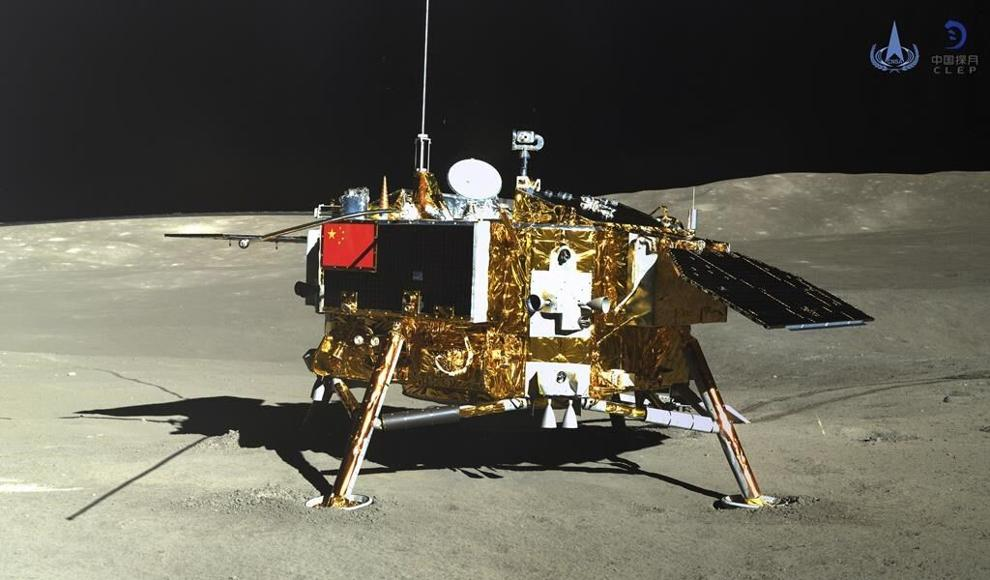
This photo provided on Jan. 12, 2019, by the China National Space Administration via Xinhua News Agency shows the lunar lander of the Chang'e-4 probe in a photo taken by the rover Yutu-2 on Jan. 11. China is preparing to launch a lunar probe Friday, May 3, 2024, that would land on the far side of the moon and return with samples that could provide insights into geological and other differences between the less-explored region and the better-known near side. (China National Space Administration. The Canadian Press
China is gearing up for an ambitious lunar mission set to kick off on Friday, targeting the far side of the moon with the aim of retrieving samples that could unlock key insights into the geological variances between this less-explored terrain and the familiar near side.
This groundbreaking endeavor marks the latest stride in China's rapidly advancing space exploration program, positioning the country as a formidable contender in the global space race, where it's vying with the longstanding leader, the United States. China made headlines in 2019 by successfully deploying a rover on the far side of the moon, a historic feat unmatched by any other nation.
The moon's far side, shielded from Earth's influence, offers a pristine environment ripe for scientific exploration, particularly in fields like radio astronomy. However, due to its perpetual orientation away from Earth, maintaining communication necessitates the use of relay satellites.
Dubbed after the Chinese mythical moon goddess, the Chang’e lunar exploration probe is slated to launch atop a Long March-5 YB rocket from the Wenchang launch center in Hainan province. The liftoff window is set for Friday evening, with a target launch time of 5:27 p.m.
China's foray into lunar exploration has already yielded significant results, notably with the return of samples from the moon's near side in 2020, a milestone not achieved since the U.S. Apollo missions of the 1970s. Analysis of these samples revealed the presence of water trapped in minuscule beads within lunar soil.
Meanwhile, recent days saw the safe return of three Chinese astronauts from a six-month stint aboard the nation's orbiting space station, ushering in a fresh crew to continue operations. China's independent development of its space station comes as a response to its exclusion from the International Space Station, largely due to concerns regarding the Chinese military's influence within its space program amid escalating technological rivalry with the U.S.
Looking ahead, China's space agenda is brimming with ambition, aiming to land astronauts on the moon by 2030, retrieve samples from Mars around the same time, and undertake three lunar probe missions over the next four years, with the next scheduled for 2027. Long-term aspirations include establishing a permanent human presence on the lunar surface, although concrete plans for this endeavor remain in the conceptual phase.
China's space odyssey commenced in 2003 with its first crewed space mission, making it the third nation, after the former Soviet Union and the U.S., to achieve independent human spaceflight. The Tiangong space station, launched in 2021, serves as China's foothold in low Earth orbit, facilitating scientific research and experimentation. Plans to open access to foreign astronauts and space tourists underscore China's ambitions in space tourism.
While the United States maintains a substantial lead in space capabilities, bolstered by robust funding and collaboration with private sector entities like SpaceX and Blue Origin, China's strides in space exploration herald a new era of competition and cooperation in the cosmos. With the International Space Station approaching the end of its operational life, China's burgeoning space program could position it as the primary custodian of crewed space stations in the near future.















